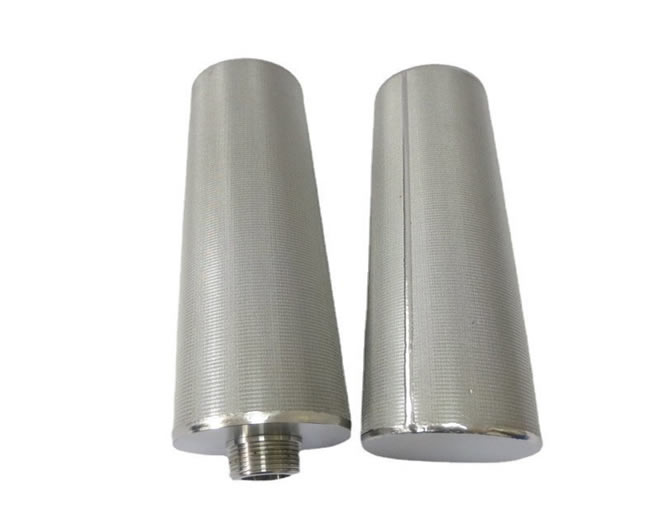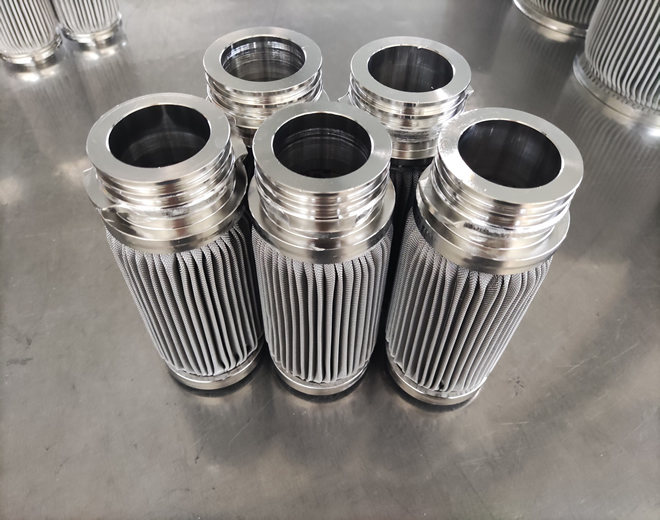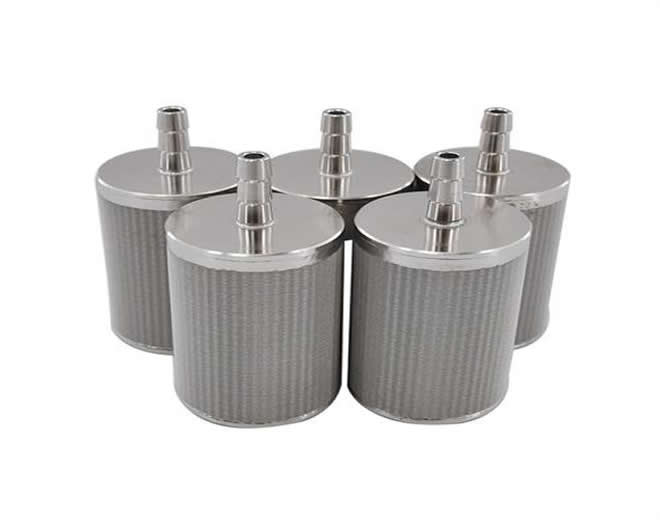The Iron Guardian of Petrochemical Production: The Role and Value of Sintered Wire Mesh Filter Cartridges
In the petrochemical industry, a pillar of the national economy, the continuity of production processes, the safety of equipment, and the purity of products are paramount. Any failure in the process can lead to significant economic losses or even safety incidents. Among many critical components, the sintered wire mesh filter cartridge, with its exceptional performance, plays an indispensable role as a silent "iron guardian."https://www.zhongbangfilter.com/114.html

I. What is a Sintered Wire Mesh Filter Cartridge?
A sintered wire mesh filter cartridge is a porous filtering material made by layering multiple sheets (typically 2-5 layers) of stainless steel woven wire mesh with different mesh counts, designed with a specific layering structure, and vacuum-sintered under high temperature and pressure.
Its core features include:
-
Gradient Filtration Structure: The surface layer is a relatively coarse protective mesh, the middle layer is a fine control layer, and the bottom layer is a high-strength support mesh. This design combines "surface filtration" and "depth filtration."
-
High Mechanical Strength: The sintering process causes molecular diffusion and fusion between layers, forming a monolithic rigid structure capable of withstanding extremely high-pressure differentials and frequent impacts.
-
Absolute Filtration Rating: The pore size distribution is uniform, reliably intercepting particles larger than the rated accuracy.
-
Excellent Backwashing and Regeneration Performance: The filter cake can be removed via high-pressure backwashing, ultrasonic cleaning, or chemical cleaning, restoring most of the filtration performance and ensuring a long service life.
II. Core Roles in the Petrochemical Industry
The outstanding characteristics of sintered wire mesh filter cartridges perfectly meet the harsh operating conditions of the petrochemical industry—high temperature, high pressure, flammability, explosiveness, and strong corrosion. Their roles are mainly reflected in the following aspects:
1. Protecting Core Equipment and Extending Operational Cycles
Petrochemical plants extensively use expensive compressors, pumps, valves, and precision instruments (e.g., nozzles, control valves). The internal clearances of these devices are very small. If clogged or abraded by solid particles (e.g., pipeline scale, catalyst powder, polymer deposits), efficiency can drop, equipment can be damaged, or even shutdowns can occur.
-
Application Points: Installed at the inlets of key equipment, lubricating oil circuits, seal oil systems, and fuel gas systems.
-
Role: Effectively intercept contaminants, prevent wear on rotating parts and precision mating surfaces, significantly reduce unplanned downtime, and ensure the "safe, stable, long-term, full, and optimal" operation of the device.
2. Enhancing Product Purity and Quality
The purity of many petrochemical products (e.g., synthetic resins, chemical fiber raw materials, high-end lubricants) directly affects their performance and grade. Impurities in the product can cause defects, poor color, or affect downstream processing.
-
Application Points: Used for filtering polymer melts (e.g., polyester, polyethylene, polypropylene) and for precision filtration before final product filling.
-
Role: Remove gels, carbonized particles, and catalyst residues from the melt, ensuring high product cleanliness and enhancing product added value and market competitiveness.
3. Protecting Catalysts and Improving Reaction Efficiency
Catalytic reactions are the core of petrochemical processes (e.g., catalytic cracking, hydrotreating, ammonia synthesis). Catalysts are expensive and sensitive to poisonous substances.
4. Direct Filtration of High-Temperature and High-Pressure Media
Many process streams in petrochemicals are in a high-temperature, high-pressure state (e.g., hot heat transfer oil, high-pressure feedstock, process gases). Ordinary polymer filter cartridges cannot function in this environment.
-
Application Points: High-temperature heat transfer systems, high-pressure pipelines, reactor inlet/outlet systems.
-
Role: Sintered wire mesh cartridges, made of stainless steel (e.g., 304, 316L) or special alloys (e.g., Hastelloy), can withstand temperatures above 500°C and pressures of tens of MPa, enabling direct filtration without cooling or pressure reduction. This simplifies the process flow and saves energy.
5. Energy Saving, Consumption Reduction, and Environmental Protection
-
Cleaner Production: Effective filtration reduces the generation of off-spec products and waste emissions.
-
Resource Recovery: Filter and recover valuable materials, such as catalysts and finished oil, aligning with green chemistry and circular economy principles.
-
Reduced Maintenance Costs: Long life and reusability reduce the frequency of cartridge replacement and waste disposal costs, lowering overall operating expenses.
III. Typical Application Scenarios
-
Polymer Production: Melt spinning (polyester, nylon), melt filtration before plastic extrusion.
-
Refining Industry: Filtration of fuel oil, lubricating oil, asphalt; slurry filtration in catalytic units.
-
Chemical Fiber Industry: Filtration of PTA (purified terephthalic acid) slurry, EG (ethylene glycol).
-
Ethylene Industry: Filtration of high-temperature gases like cracked gas, propylene, and ethylene.
-
Fertilizer Industry: Filtration of synthetic ammonia feed gas, urea solution.
Conclusion
Within the vast and precise system of the petrochemical industry, the sintered wire mesh filter cartridge, though a small component, is a critical link in ensuring production safety, improving product quality, increasing economic efficiency, and achieving environmentally friendly production. Its high strength, temperature resistance, and reusability make it an ideal choice for tackling the challenges of extreme operating conditions, truly living up to its name as the "loyal guardian" of modern chemical plants. Selecting high-performance, highly reliable sintered wire mesh filter cartridges is of strategic importance for the stable operation and long-term development of petrochemical enterprises.


